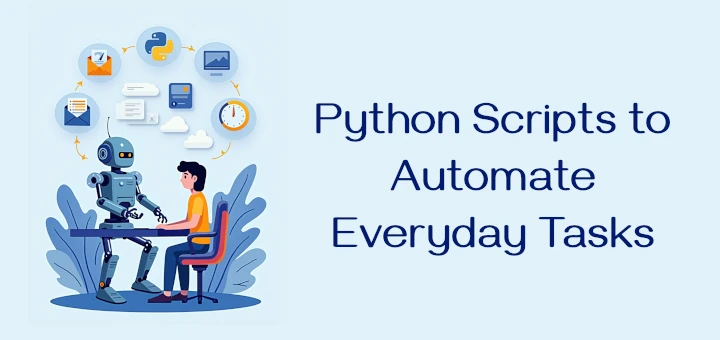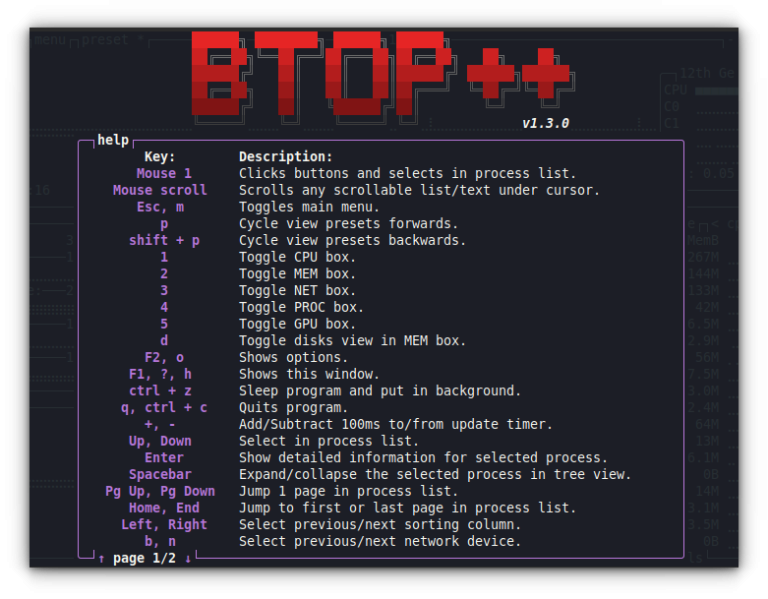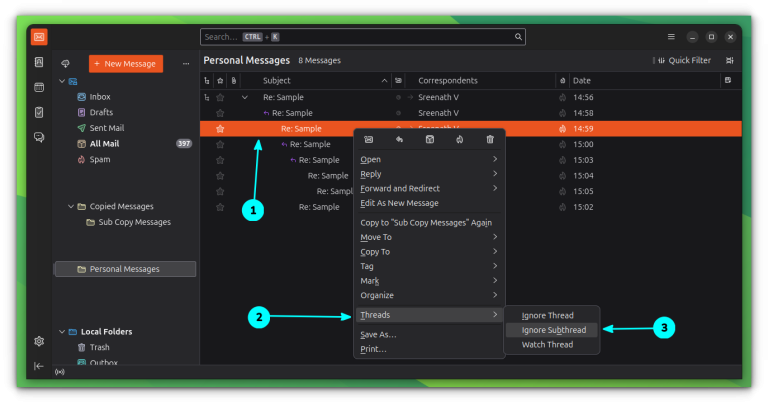I’ve worked in SEO for just over 12 years.
In that time, I’ve built up a trusty vault of tried-and-tested SEO resources that I use, which I’ll share with you today. Hopefully, you’ll find them useful (…and maybe even bookmark this page).
Here are the ones I use:
1. Google Search Console – For many people Google Search Console, or “GSC” is the first tool you connect to your website to help diagnose technical issues and assess performance from Google’s perspective. It’s where a lot of my analysis has started off over the years.

2. Google Analytics – Although GA4 is not nearly as popular as its predecessors, Google Analytics is a necessary part of SEO reporting, and it’s a useful tool for seeing what is going on outside of organic search.
3. Ahrefs Webmaster Tools – Ahrefs WMT is the best (free) way to get a taste of Ahrefs. Setup is fast if you already have access to GSC, and in a couple of clicks, you can start improving your website’s SEO performance. I used it while working in an agency to run a quick audit of clients’ sites.
4. Screaming Frog – If you want to audit a website, Screaming Frog is one of the best tools for small sites, as you can use it in list mode for free or up to 500 URLs in crawling mode.
5. Bing WMT – Bing’s version of GSC is one of the best ways to gain insights into how your website performs and diagnose website issues.
6. Ahrefs’ Free SEO Tools – Ahrefs has eight tools that you can check out completely for free. Covering everything from keyword research and link building to SERP and ranking checkers.
7. Google Trends – Allows you to understand trends of certain keywords. This type of data is especially interesting if you work in ecommerce SEO, as it can help you track product category trends and compare them against each other.
8. Pinterest Trends – If you are working with a company that gets traction on Pinterest then Pinterest Trends might be a more useful tool than Google Trends.
9. Google Collab – A Jupyter notebook-style platform that requires no setup and is the easiest way to run a Python script. Google Collab is great if you work in an agency, as you can run small Python scripts without asking the IT department for admin access every five minutes.
10. Chrome DevTools—DevTools is built into the Chrome browser and is one of the best free tools for diagnosing technical or performance issues with websites.
11. Page Speed Insights – Helps you diagnose issues with Core Web Vitals and other SEO performance issues.
12. Google Looker Studio – Formerly known as Google Data Studio, this is a dashboarding platform for creating free SEO dashboards.
13. Google Keyword Planner – Google’s tool to help you identify the search volume of keywords.
14. Webpagetest.org – In years gone by, I’ve seen this used by the team at Google. It helps measure the speed of your website and create a loading animation video to show the speed difference between competitors.
15. Dentsu’s technical SEO tools – Dentsu has a suite of 17 free SEO tools that you can use for free, covering everything from hreflang tag testers, XML sitemap generators, schema markup generators, and much more. Formerly run by Merkle this has always been a useful resource for free SEO tools.
16. Keyword Shitter – As the name implies, if you need to mass-generate keywords quickly, then this is the tool to do it.
17. Hreflang Checker – Useful free tool created by Dan Taylor for checking, yes, you guessed it, hreflang implementation.
These are the ones I use most regularly.
18. Yoast SEO – Yoast has been considered the number one SEO plugin for many years now. Its strength lies in its ability to simplify a lot of SEO optimization.
19. RankMath – RankMath is another popular WordPress SEO plugin. Like Yoast, it simplifies SEO optimization.
20. Ahrefs WP Plugin – Our tool allows you to run a full content audit on your website and suggests different improvement actions. It integrates with GA and GSC to help provide you with better-targeted keywords and content recommendations.
21. TablePress – If you work with data, you’ll need to use a table in WordPress. One of the most SEO-friendly ways to do this is using a plugin like TablePress.
23. Ahrefs – Video mastermind Sam Oh has been heading up the Ahrefs’ YouTube channel for as long as I can remember. I have watched his videos since day one, and they have always provided the highest-quality information with easy-to-digest SEO tips to help raise your SEO game.


25. SEOFOMO – Aleyda Solis has been running SEOFOMO for a number of years now, and the newsletter has become one of my favorites to read recently. Aleyda has always had her finger on the pulse of the SEO industry since I started my career, so it’s no surprise that the newsletter is really insightful.
26. Ahrefs’ Digest – Every week, Si Quan sends out the Ahrefs’ Newsletter to 284k marketers. It’s packed to the brim with lots of marketing goodness. If you haven’t already, sign up here.
27. Detailed.com – SEO insights from tracking the rankings & revenue of 3,078 digital goliaths.
28. SEOMBA – Founded by Tom Critchlow the SEOMBA provides leadership, management and career advice to those working in the SEO industry.
29. Niche Pursuits – Founded by Spencer Haws, Niche Pursuits is a newsletter I signed up for a few years ago and linked to their YouTube channel. It has always had interesting guests, and Spencer is a great interviewer.

I’ve included some of the lesser-known plugins I’ve used over the years as well.
30. Hreflang Tag Checker – If you’re working with an international site, then this is a useful extension to help you check your hreflang tags are correct
31. Ahrefs SEO Toolbar – Our toolbar is now one of the most full-featured toolbars out there. When I joined Ahrefs, I had about 20 extensions that I would use. As the toolbar has improved over the last two years, I’ve deleted a lot of the other Chrome extensions I used to use—as the Ahrefs’ toolbar does it all.
32. Wappylyser – Useful for understanding the technology behind websites. Doing so is useful for technical SEO as it lets you understand what SEO issues you could encounter.
33. Linkclump is a great tool for copying links quickly. I use it to scrape the search results. (Don’t tell Google!)
34. SEO Render Insight Tool – This tool highlights server-side rendered (SSR) vs client-side rendered (CSR) content on websites, I find it useful for spot checks.
35. FatRank – A quick way to check the ranking for any keyword.
36. Detailed SEO – Created by Glen Allsopp, this extension has seven tabs on on-page factors you can use to analyze any website.
37. Robots Exclusion Checker – Checks the website’s robots.txt file to ensure specific pages are excluded from search engine indexing.
38. Word Counter Plus – A browser extension that counts words, characters, and sentences in text. If you write content, then this can be a useful way to check your word count quickly.
39. SEO Meta in 1 CLICK – With over 600k users, this is a popular extension for diagnosing on-page issues.
40. Scraper – A simple but fast way to get data out of websites and into your spreadsheets. I’ve found this useful for assisting with data studies.
41. Keywords Everywhere – A browser extension that provides keyword metrics such as search volume and CPC directly in search results, helping users identify valuable keywords for SEO strategies.
42. SEO Minion – Created by Keywords Everywhere, this extension can analyze on-page SEO, check broken links, compare differences between HTML and DOM (rendered HTML), analyze structured data, and more.
43. SEO Schema Visualizer – Allows you to visualize JSON-LD schema markup in a click.
Podcasts have seen a resurgence in popularity in recent years. They’re a great way to consume information while traveling or if you prefer listening to reading.
Here are the podcasts that I recommend you give a listen:
44. Ahrefs Podcast – Ahrefs CMO Tim Soulo interviews high-profile guests in the marketing world. My favorite podcast episode so far was the Glen Allsopp episode. A must listen.

45. Search Off the Record – Hosted by the Google search relations team, they discuss trending topics in search, what they’re working on, and the decision-making behind launches.
46. Authority Hacker Podcast – Gael Breton and Mark Webster share actionable ways to get more traffic that converts.
47. Crawling Mondays – Aleyda Solis presents Crawling Mondays, which also has a YouTube channel. She has some high-profile guests and has got Google’s Danny Sullivan on the show.
48. Search with Candour – Presented by Jack Chambers-Ward and Mark Williams-Cook, this show always makes for an interesting listen. It has a wide variety of guests from the SEO world and thought-provoking discussions
49. SERPs Up – Weekly SEO insights with Mordy Oberstein and Crystal Carter, along with a huge variety of high-profile guests.
50. The SEO Rant – Hosted by Mordy Oberstein. Each week, the SEO Rant provides unfiltered SEO insights from some of the world’s top industry experts.
52. Moz Beginners Guide – Many older SEOs might have started learning SEO by reading this guide. It’s something that I used in the past to help train new SEOs.
It may sound old-fashioned in our online world, but sometimes, the best way to get an in-depth view of a particular topic is to pick up a book and read it.
Here are the books I recommend.
53. The Art of SEO – This is a very detailed guide to SEO. When I learned SEO, there weren’t many SEO books around, but this was one that I enjoyed reading.
54. Product-Led SEO – This must-read book by Eli Schwartz is for anyone interested in taking their SEO strategy to the next level.
55. Feck Perfuction – A book that helps you tackle communicating more complex SEO projects and shift your mindset to create marketing that resonates more with your audience.
56. Information Architecture for the World Wide Web – This book goes deep into the science behind structuring content on a site. It will most likely appear to enterprise SEOs or anyone working on a large website.
57. Data-Driven SEO With Python – This book is useful for SEOs who want to expand their knowledge further and incorporate tools like Python into their SEO and data research projects.
58. The Link Building Book – I think every SEO should read this book as it offers practical ways to build links that anyone can do.
59. Entity SEO – Written by Dixon Jones, it’s an interesting deep dive into Entity SEO. This will be of more interest to more experienced SEO professionals.
60. Ahrefs SEO Book For Beginners – Our beginner’s book to SEO is the perfect way to start learning about SEO in my opinion. It’s also useful if you are an SEO team lead and you want to quickly train new starters on the basics of SEO and how to use Ahrefs effectively.

In my SEO salary post, I was surprised that only 9% of SEOs learned SEO from a course. There are a lot of high quality courses out there at the moment, and we have a stack of them at Ahrefs.
61. Ahrefs Academy – We have no less than seven video tutorial courses that you can watch through the Ahrefs Academy. They cover everything from How to Use Ahrefs, to Blogging for Business and everything in between. Don’t sleep on this amazing SEO resource.
62. Ahrefs Certification – If you want to earn a certification for your Ahrefs skills then you can now get your very own certificate to say you’ve passed. I’ve taken the exam and it isn’t a walk in the park, so make sure you brush up your skills before taking the exam.
63. HubSpot SEO Certification – A free certification course that covers the basics of SEO, like keyword research, building backlinks, and understanding the SERPs.
64. Google Skillshop – The best place to get product training on Google’s products and get certified on them.
Over the past 10 or so years, outside of social media, three websites have been the main sources of information for SEO news and insights.
65. SERoundtable – Founded by Barry Schwartz in 2003, Search Engine Roundtable reports regularly on SEO, Google’s algorithm updates, SEO techniques, and more. It is the OG of SEO reporting.
 66. Search Engine Journal – Search Engine Journal was founded by Loren Baker in 2003, it covers topics related to SEO, content marketing, and social media.
66. Search Engine Journal – Search Engine Journal was founded by Loren Baker in 2003, it covers topics related to SEO, content marketing, and social media.67. Search Engine Land – Founded by Danny Sullivan and Chris Sherman in 2006, SEL has been one of the first places I’ve checked to see what’s happening in SEO.
In between SEO news cycles, SEOs like to catch up on a couple of blogs to digest different opinions and do research on a particular topic. I am no different. I monitor many blogs.
Here are my favorites:
68. ImportSEM – Useful place to find Python SEO scripts and tutorials on how to incorporate Python into your digital marketing efforts.
69. JC Chouinard – One of the best places to start learning about Python for SEO. I’ve been reading this website for many years and have always come away with some useful takeaways.
70. Brodie Clark – If I want to know the latest developments in ecommerce SEO, I often visit Brodie’s blog or see his latest posts on social media.
71. Kevin Indig’s Growth Memo – Kevin Indig’s blog is one of the most popular blogs out there. I find it useful for developing strategies around SEO.
72. Ahrefs Blog – You’re reading this on Ahrefs blog, so you probably know a bit about us. We regularly blog on different marketing topics and produce our own unique data studies. In my opinion, Ahrefs blog is a must-read blog. And for me, it has been for many years now.
73. Moz Blog – The Moz blog has been established for a long time and was one of the first well-known SEO blogs. It still has a stack of interesting guests on there.
74. The SEO Sprint – Adam Gent’s SEO Sprint is a must read if you are interested in how to get your technical SEO recommendations approved by developers, product teams and other senior staff.
75. SEO By The Sea – Bill Slawski is no longer with us, but his work lives on and I, like many other SEOs, still read his blog from time to time as a useful SEO resource and treasure trove of SEO information.

![How to Fix WordPress Revisions Not Showing [SOLVED]](https://matchpage.info/wp-content/uploads/2024/12/how-to-fix-wordpress-revisions-not-showing-solved-4-768x327.png)



